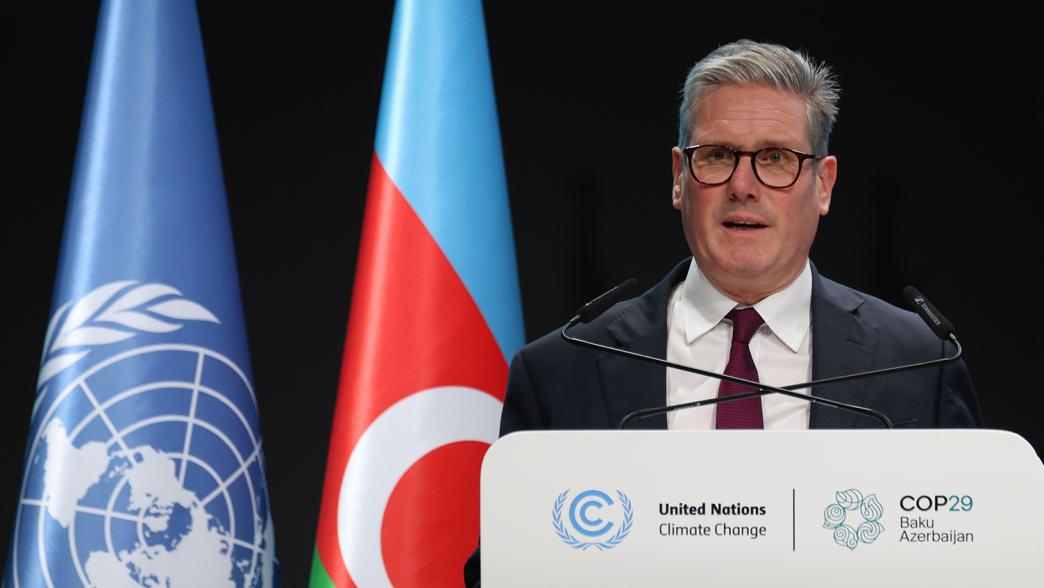
As the UK embraces its leadership role in the fight against climate change, the outcomes of COP29 present businesses with a mix of challenges and unprecedented opportunities. Building on Prime Minister Keir Starmer's commitments to decarbonise the power sector and achieve an ambitious 81% emissions reduction by 2035, the UK is accelerating its journey toward Net Zero.
Businesses in the Black Country and West Midlands have immediate opportunities, especially through programmes like the Decarbonisation Net Zero Programme.
Read below to get a closer look at the strategies and initiatives that can drive your business forward in line with COP29's commitments:
Achieving the 81% Carbon Reduction Target
The UK government is stepping up its climate targets with a pledge to cut emissions by 81% compared to 1990 levels by 2035. For businesses, this means stricter regulations on carbon emissions and energy efficiency standards, alongside the need for more robust carbon reduction strategies. This ambitious target hinges on dramatically expanding offshore wind energy, nuclear power, and carbon capture technologies.
Our Advice:
- Embrace Electrification: Transition to electric vehicles, machinery, and heating systems.
- Boost Energy Efficiency: Conduct energy audits and implement efficient solutions.
- Tap into Renewables: Consider solar panels, wind power, or other renewable generation technologies.
Great British Energy and Clean Power Investments
With the launch of Great British Energy, the UK is investing heavily in homegrown renewable energy, with substantial commitments to offshore wind, nuclear power, and carbon capture and storage facilities. For businesses, this could signal new opportunities for energy procurement contracts, investment in clean technologies, and financial incentives tied to carbon reductions. The UK government’s Clean Industry Bonus also provides business opportunities in offshore wind and energy storage areas.
Carbon Capture and Storage (CCS)
The UK is pushing ahead with investments in carbon capture, particularly in regions like Teesside and Merseyside. This technology allows carbon-intensive businesses to reduce emissions while continuing operations. Exploring CCS collaborations could be vital for manufacturing, chemical, and steel production industries.
Nuclear Energy Collaboration with the US
The recent UK-US deal to advance nuclear energy represents a significant step in achieving Net Zero, as nuclear power will play a crucial role in decarbonising heavy industries and providing baseload power. For UK businesses, nuclear energy presents an opportunity to access more stable and low-carbon energy sources. Additionally, collaborating on nuclear innovation may lead to new business opportunities in energy tech development.
To read more on ‘Boost for clean energy growth’, visit https://www.gov.uk/government/news/boost-for-uk-clean-energy-growth-as-pm-arrives-at-cop29.
Our Support:
- Assess Nuclear Benefits: Explore how nuclear energy might fit into your energy mix.
- Engage with the SMR Supply Chain: Investigate opportunities in manufacturing or supplying components for nuclear technologies.
Investment in Green Innovation and Local Infrastructure
Another crucial aspect of COP29 commitments is the UK’s emphasis on revitalising industrial heartlands through clean energy jobs. By creating jobs in manufacturing and renewable energy sectors, particularly offshore wind and clean hydrogen, UK businesses can tap into a growing talent pool and new local markets.
The Role of Carbon Markets
As part of COP29, the UK has also outlined principles for carbon markets to finance global decarbonisation efforts. With the growing demand for carbon credits and increased regulation of emissions, businesses need to explore carbon offset strategies to stay compliant and generate new revenue streams through carbon trading.
So, What Does This Mean for Your Business?
For businesses across the UK, the landscape post-COP29 is clear: The transition to a Net Zero economy is not just a regulatory shift - it’s a massive economic opportunity. Companies that align early with these initiatives will benefit from:
- Enhanced reputation: Being a leader in decarbonisation will improve your brand’s standing with customers and investors who are increasingly prioritising sustainability.
- Access to green finance: The government’s investment into offshore wind and other clean energy initiatives offers funding opportunities for businesses that commit to renewable energy or carbon reduction technologies.
- Long-term cost savings: Transitioning to cleaner, renewable energy sources not only supports emissions reduction but can also bring long-term cost savings by reducing reliance on fossil fuels, which are subject to volatile pricing.
- Market leadership: Engaging with technologies like CCS, offshore wind, and nuclear can place businesses at the forefront of the next generation of low-carbon industries.
What Should Businesses Do Now?
- Audit and Improve Your Energy Usage: Understanding where energy inefficiencies lie within your operations is the first step toward compliance with stricter emissions regulations. Consider working with energy consultants to identify areas where renewable energy or energy efficiency measures can reduce costs and carbon footprints.
- Invest in Low-Carbon Technologies: Whether it’s solar, offshore wind, energy storage, or CCS, early adoption of these technologies can position your business as a leader in the green economy.
- Consider Carbon Markets: Stay ahead of regulatory changes by exploring opportunities in carbon trading and carbon credit markets, which will only grow as the UK intensifies its carbon reduction policies.
By embracing the UK’s new climate goals, including its ambitious 81% emissions reduction by 2035, businesses can not only contribute to the country’s climate objectives but also unlock new avenues for growth, investment, and innovation in the low-carbon economy.
How can Pro Enviro help?
Pro Enviro is the specialist Energy Management and Decarbonisation Consultants contracted to deliver the Decarbonisation Net Zero Programme for businesses in the Black Country region (Walsall, Dudley, Wolverhampton and Sandwell), Worcestershire, Marches and Staffordshire.
To know more about the current grant programmes, visit our website at www.proenviro.co.uk or call us at 01788 538150.





